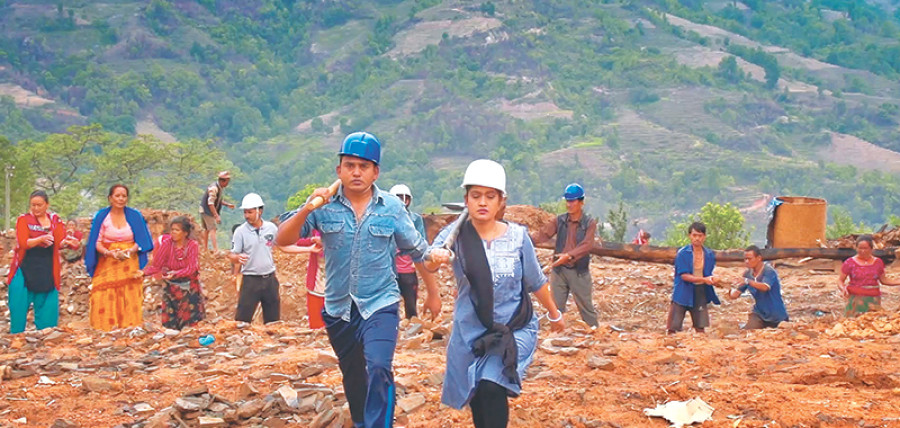Miscellaneous
Our first nations
The debate on ethnic federalism makes for an interesting topic for several reasons. It talks about divesting some state power and granting them to smaller entities;
Abhinawa Devkota
The debate on ethnic federalism makes for an interesting topic for several reasons. It talks about divesting some state power and granting them to smaller entities; increasing the participation of marginalised ethnic groups and communities in decision-making and implementing equal and just measures to uplift those groups that are at the bottom of the social pyramid. But there is another element to this debate that makes it depressing: the complete absence of voices of some tribes and ethnic groups that might have been living in our country for the longest period of time.
Who are they? Our recorded history hints at a few groups of people that have lived in this place for millenia. So, could they be the Kiratas whose valour in the battlefield and marksmanship have been praised in the Mahabharata and who gave the Valley its longest-ruling dynasty? Are they the present-day Madheshis who were once part of a civilisation that produced some of the greatest rulers, philosophers and religions the world has ever known? Are they the Khasas who, according to some scholars, are none other than the Kassites of Babylon who left their homeland nearly three and a half millenia ago and fanned out into the hills and mountains of Central and South Asia? Or are they the Newars who have been living in the Valley and its surrounding areas since time immemorial?
Let us not get into the argument that there are still descendents among us who can trace their lineage all the way back to the sun god, mythologically speaking, or Ramapithecus, in a Darwinian sense, for we simply do not have enough evidence to support it (though this might soon change with DNA research becoming more and more popular in determining ones ancestry). But even if we are to negate the argument, the answer we are likely to receive often varies from person to person.
So, while the hill bahun-chettris might say that the antiquity of Khasas in Nepal cannot be challenged, CK Raut argues that the Madheshis (by which I understand the Indo-Aryans) are the true dhartiputras of the plains. Interesting? Ask a Kirat and he might tell you that his ancestors once called the large swathes of what constitutes modern-day Nepal their own before the arrival of the Khasas and Indo-Aryans.
Fair enough. But let us now examine some of the facts and try to figure out who qualifies as our first nations. The Kiratas, many researchers agree, migrated from China and came to Nepal via north-eastern India and Myanmar. The Madheshis and the Khasas, as most of us have read, landed on Indian subcontinent fleeing wars in Mesopotamia. The Newars, scholars like Gopal Singh Nepali argue, are a nation onto itself, more a cultural group than an ethnic one, whose culture is a result of influences that can be traced as near as the Gangatic plains and as far as beyond the Vindhya range.
But even before the successive Aryan migrations, even before the Mongoloid people stumbled upon this place, it was occupied by Austroasiatic groups of people whom the ancient vedic texts refer to as the Dasas or Dasyus. They were the ones killed or enslaved by the Aryans in what might probably be among the first documented instance of racial discrimination, they were the ones whose lands were later usurped by the successive groups of people who came to this place.
They still exist. In the margins of our society where they have lived for thousands of years. They are, according to historians like Baburam Acharya, the Majhis and Danuars of the hills. They are the Mundas and Musahars of the plains. And despite their lack of visibility, as Nepali alludes in his book The Newars, they have influenced many languages spoken in our country today.
Sadly, their marginalisation and exploitation has remained the least of our political and social concern. It still takes Ramesh Bikal to narrate their plight. It still takes Dhurmush and Suntali to build their homes. But the effort is not enough. As the first inhabitants of this place, they command our greatest respect. To not give them their due would be our greatest mistake.




 9.6°C Kathmandu
9.6°C Kathmandu










